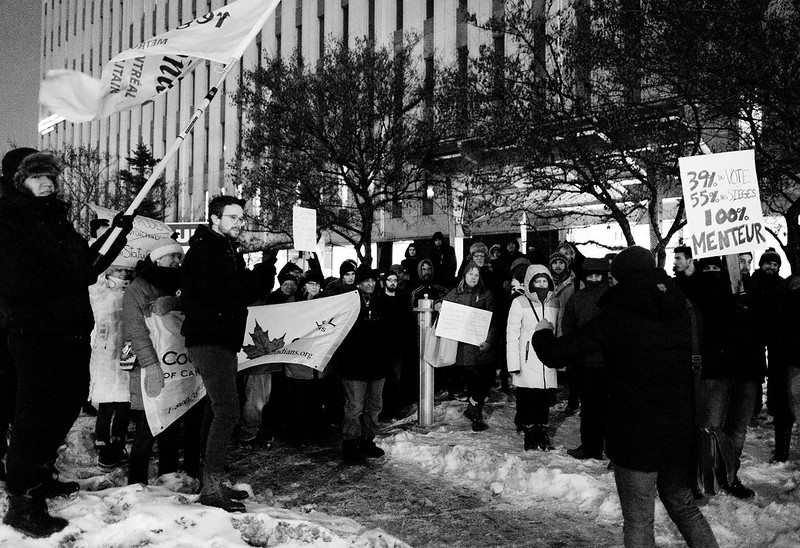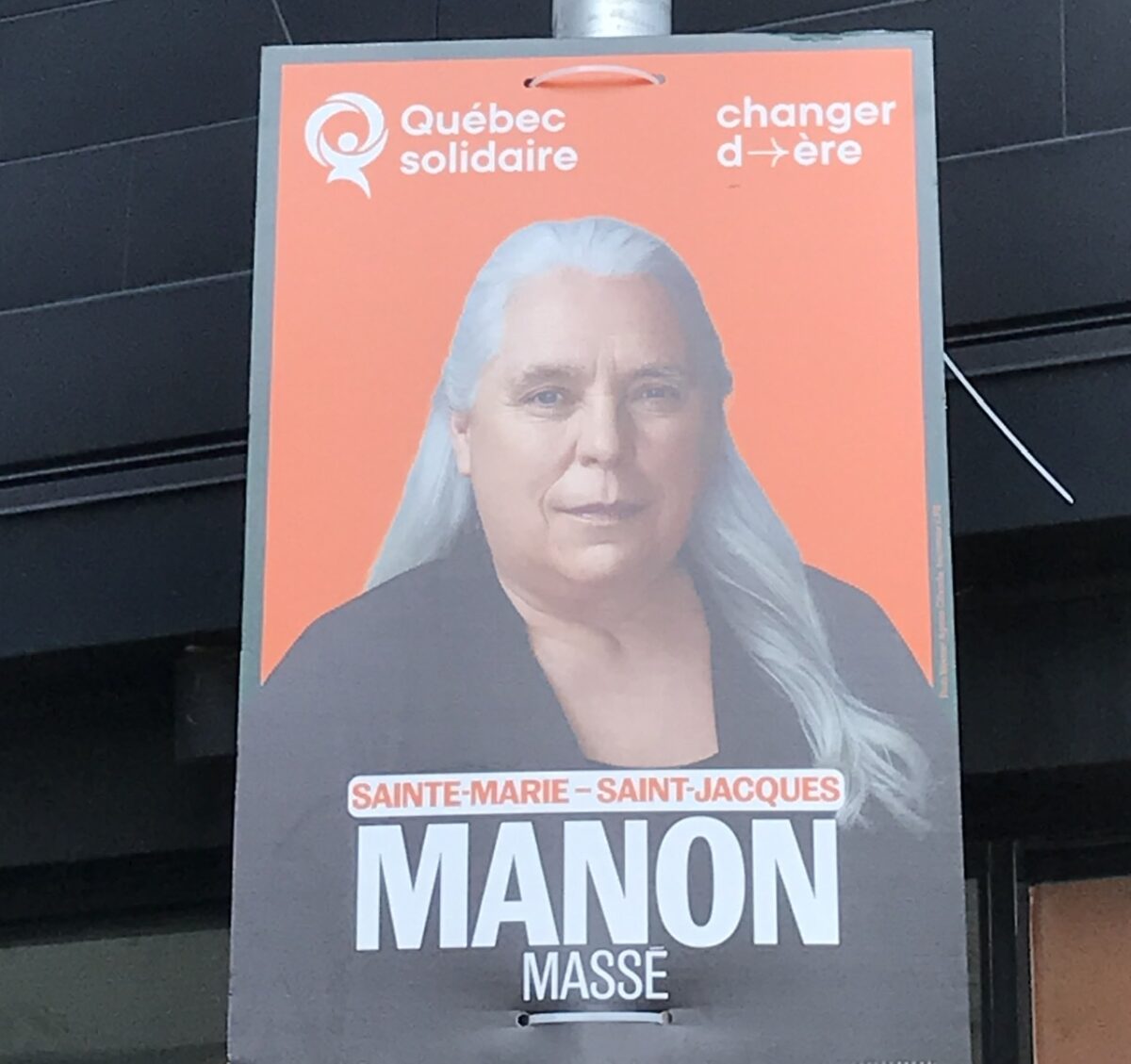A couple Mondays ago I walked up to the local épicerie to do the weekly grocery shopping (I like to go early in the morning, when our nightowl party street in The Village is quiet). Even early in the day the air was steamy hot, and so humid it felt silky, like walking through dishwashing soap.
Even slipperier, dozens of big brightly-colored political posters had gone up, signaling the start of the province’s election campaign.
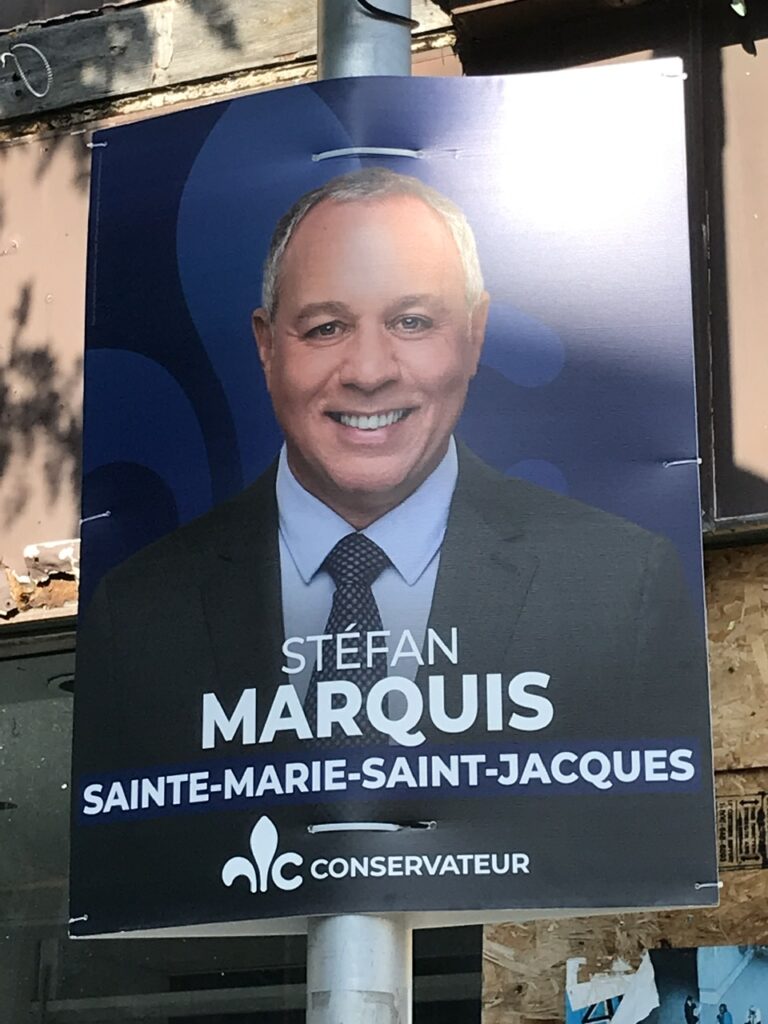
The election is in early October; the candidates have about five weeks to get their messages out. Though politicians like Francois Legault, the current Premier of Québec, are always grandstanding about their policies and successes, the official campaign season is mercifully short–another reason we like Canada.
There are five major parties grappling for votes right now, along with several minor parties who don’t stand a chance. We’re not citizens so we can’t vote, but we’re trying to wrap our heads around the major campaign issues anyway. Healthcare, cost of living, housing, immigration, environment, and language integration top the list.
Quebec sovereignty, a determining stance in Quebec since the 1970s, is no longer a drumbeat issue. I’m guessing that Bill 96‘s increasingly restrictive French-language laws are a form of constructive separatism that fulfills that desire in the electorate without the hassle of divorcing the federal government.
However, due to the passage of Bill 96, Anglophone vs. francophone platforms are now part of the mix. A new party, the Canadian Party of Québec, seeks to rep anglophone rights in the province, but anglophones are so incredibly outnumbered it’s unlikely to get much traction.
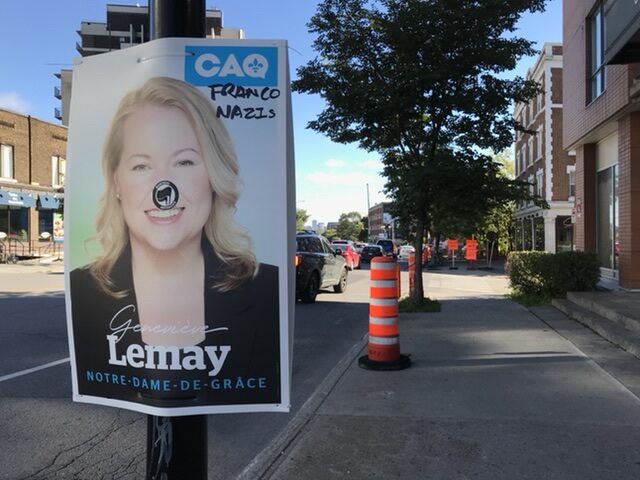
Legault’s pretty-rightish Coalition Avenir Québec is set to retain a grand Parliamentary majority, but the liberal or conservative influence of the party that comes in second will have a critically important impact on Québec’s future.
That said, the political handles of “liberal” and “conservative” do not line up here as they do in the U.S., though some takes are similar (like conservatives tending to push for privatizing healthcare and other industries). For example, Quebec Solidaire, a sovereigntist party, also stumps for stronger environmental laws and housing laws–issues viewed as leftist in the U.S.
Voters in Montréal are also seeking more representation with the formation of Bloc Montréal. Montréal generates a large portion of Quebec’s budget (being its biggest population, tourist, and worker hub) and Bloc Montréal wants more provincial money allocated for Montréal infrastructure and civic projects. Balarama Holness, considered a rising star on the political scene, also embraces bilingualism and the repeal of Bill 96.
Montréal also has the province’s highest concentration of immigrants, and Legault has made some rather offensive remarks about immigrants and POCs (then apologized, then doubled-down). His populist dogwhistles about “national cohesion” arouse his (right-wing political) base, so it seems the apologies are pro forma for any moderates who may be looking his way.
Legault also chided Montréal for “looking down on Québec City” when he got caught out during a discussion about a proposed public transit project, and has promised to make Québec City bigger and better–partly due to the increase in popularity of the Conservative Party of Québec in the Québec City region, and maybe also as a diss to Balarama Holness’ successes in Montréal.
Legault’s not the only one who holds exclusionary sentiments. The recent election of populist anti-masker Pierre Poilievre to the leadership of the federal Conservative party of Canada indicates that, like the U.S., the entire country is facing a wave of right-wing extremism that may overwhelm Trudeau’s Liberals in the next few years.
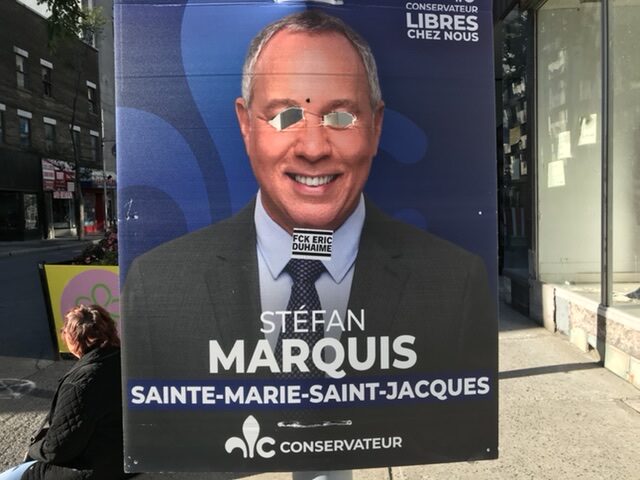
Alors, I know you’re fascinated but I don’t have the deep knowledge (or time) to do a complete analysis of all the parties and their positions for you, so here’s a handy breakdown of party positions by issue in English and, if you want to practice your French, a simple visual table and a Redditor-made chart.
Or, just take the quiz! Vote Compass will help you figure out what candidates are the best fit for your values, and where you land on Québec’s political spectrum. Who would YOU vote for?
